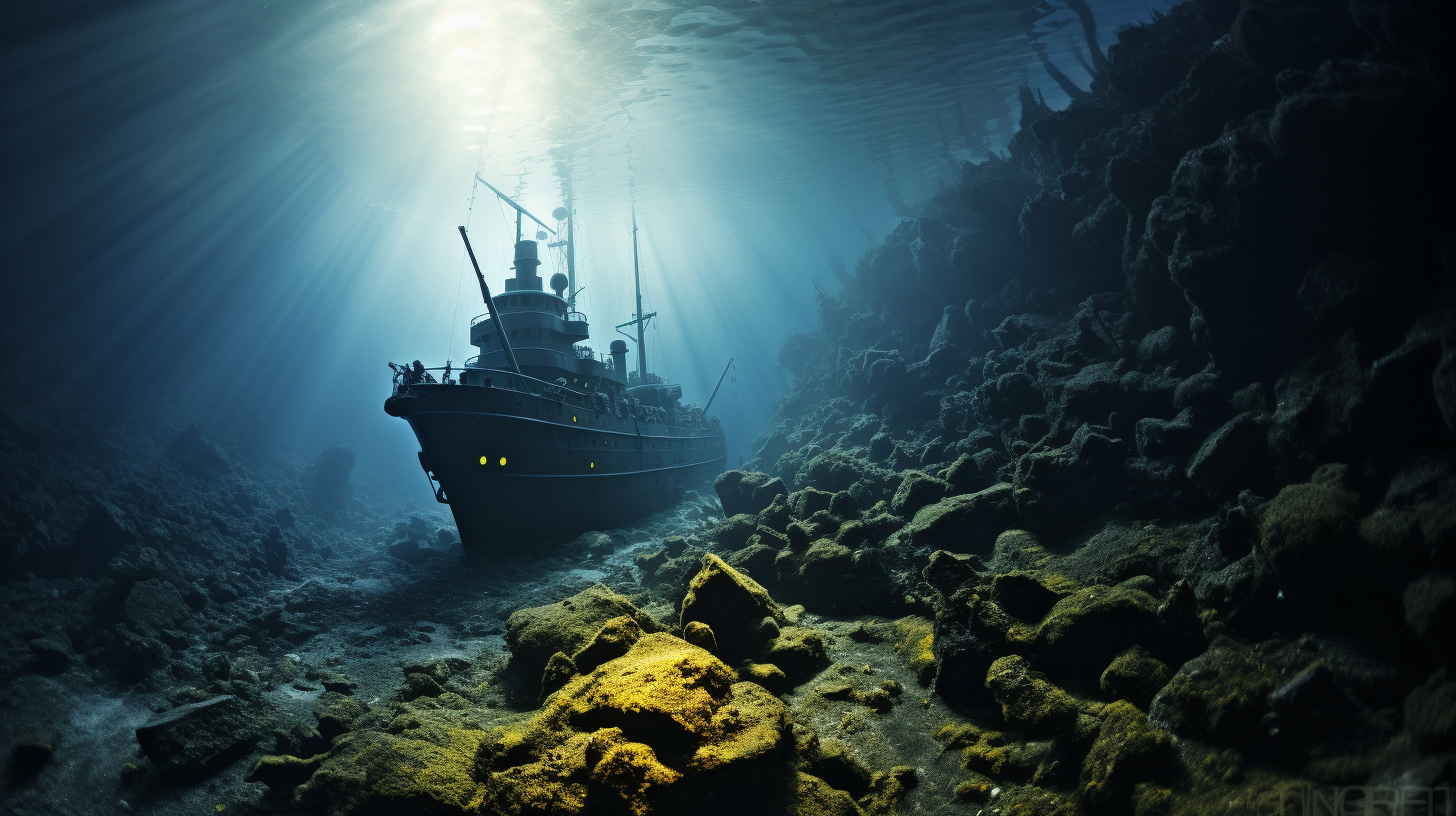As the sun fades on the scorched and battered surface we call land, the eyes of the industrial behemoth turn ponderously towards the abyssal plains of our oceans. There, in the haunting depths, lies a trove untouched by the daylight’s gaze, ripe for the taking—or so the narrative goes. Deep Sea Mining, once the stuff of science fiction, is now at our corroded doorstep, promising a bounty of minerals critical to the lifeblood of our technology. But at what cost?
Our terrestrial ventures for resources have left scars visible from orbit; gaping wounds in the crust of the Earth that bleed dust into the sky. It is this insatiable hunger that drives us to imagine conquering new frontiers. But in the ocean’s vast, silent expanse, the repercussions of such ventures are as mysterious as the creatures lurking in its black waters. The sea bed cradles manganese nodules, cobalt-rich crusts, and massive sulfide deposits—a siren’s call to the metal-hungry civilization above.
“What was once boundless and untamed will soon shudder under the mechanical might of our drill heads,” warns Dr. Marina Silva, a deep-sea ecologist. Her voice is but one in a chorus of environmental sentinels, sounding the alarm on the catastrophic impact these extractions might have on the deep-sea habitats. The seafloor is a complex ecosystem, and the possible extermination of undiscovered species is an ethically harrowing prospect. Yet, pro-deep sea mining advocates argue that the need for these resources is inescapable if our technology-dependent society is to continue.
Consider that the demand for batteries alone—powering everything from smartphones to electric vehicles—has ignited a surge for cobalt and lithium. As terrestrial reserves grow increasingly difficult to exploit amidst environmental and human rights considerations, the seabed’s resources beckon as a final frontier. But delving into this final frontier is not without its own suite of human rights concerns, as indigenous communities and small-scale fishers fear the loss of their own means of subsistence.
The International Seabed Authority (ISA), a body established under the United Nations Convention on the Law of the Sea, oversees the regulation of mineral-related activities in the international seabed area. However, critics point to its dual mandate—both to protect the marine environment and to organize and control mineral resources—as a troubling conflict of interest. “A Guardian with a taste for gold can hardly be trusted,” asserts an anonymous source from within the ISA, voicing concerns that conservation might be forfeited for profit.
Amidst this bitter debate, the technology to plunder Neptune’s realm advances steadily. Autonomous underwater vehicles (AUVs) and remotely operated vehicles (ROVs) equipped with powerful cutters and collectors are being tested, heralding the near-future possibility of large-scale exploitation. The vision of the ocean floor, mired by robotic conquerors, extractive anarchy frozen in the eye of the storm of progress, seems all but inevitable.
Yet, beneath the technical bravado and strategic calculations, lies a tale of loss. “Every grain of sand displaced, every larvae cloud dispersed, every microbial community disrupted, is a chapter closed in the annals of our blue planet’s history,” laments Dr. Silva. She paints a vivid picture of bioluminescent corals winking out one by one, of jagged mountains never surfed by human eyes being levelled before their majesty can be appreciated, of the ocean’s chorus forever silenced by the din of machines.
In the dizzying race to avert a resource crunch, we stand on the brink, peering into the depths that when once disturbed, might bestow upon us not just the material wealth we seek, but a cascade of consequences that echo into the oblivion much like how the darkest reaches of the sea swallow light whole.
Is the ocean floor truly our last frontier? Or is it a Pandora’s box, best left sealed beneath the pressure of the waves, a testament to the world we could preserve rather than pillage? With each passing day, the siren song of deep-sea mining grows louder and more insistent, and we must decide whether to heed its call or turn away, lest we lose more than we could ever mine.
